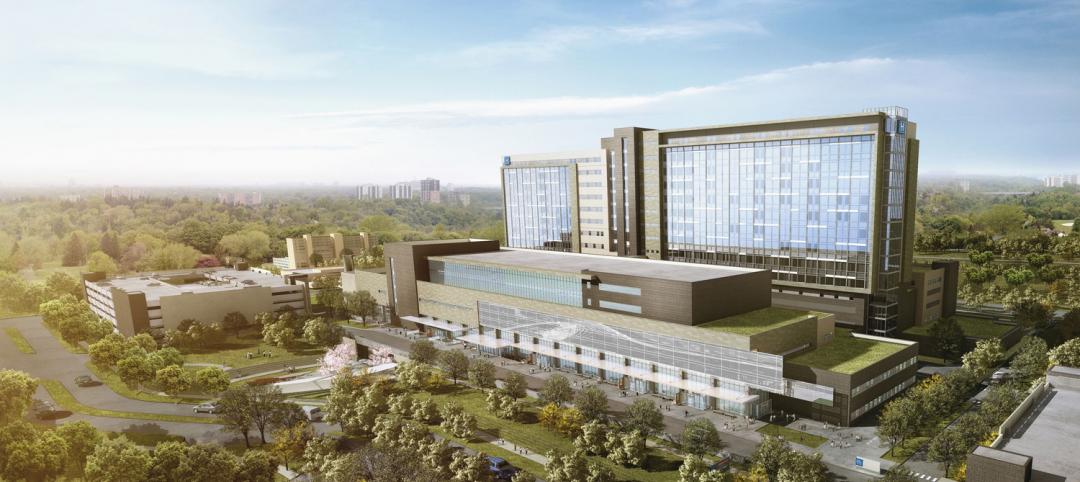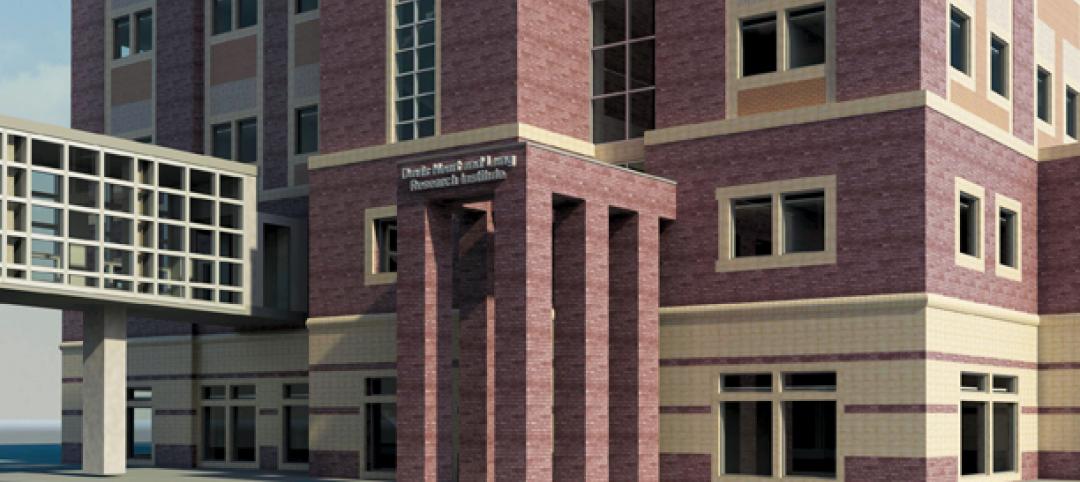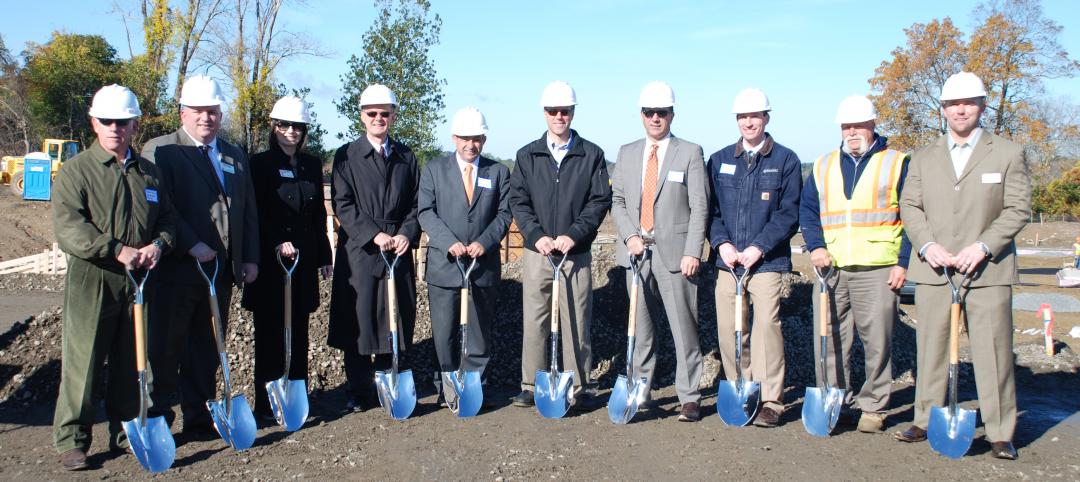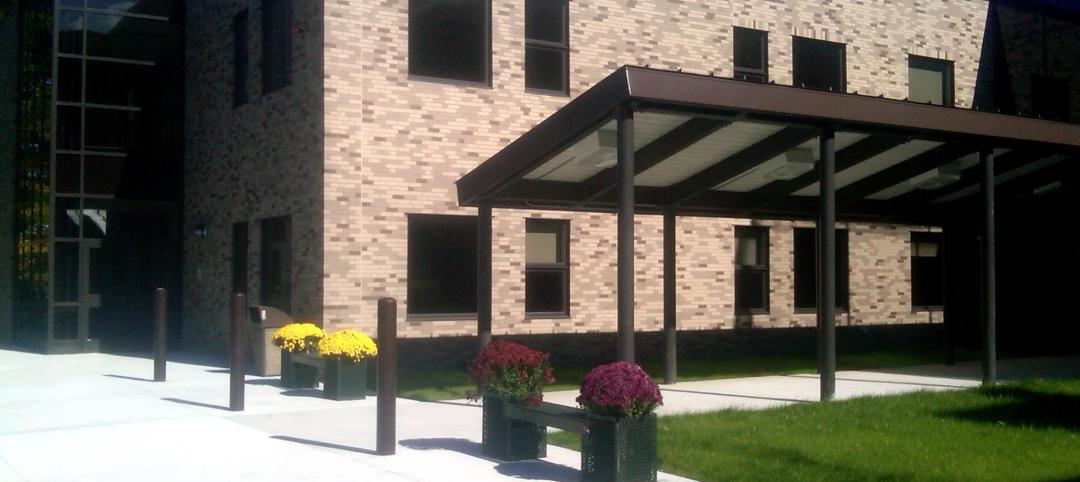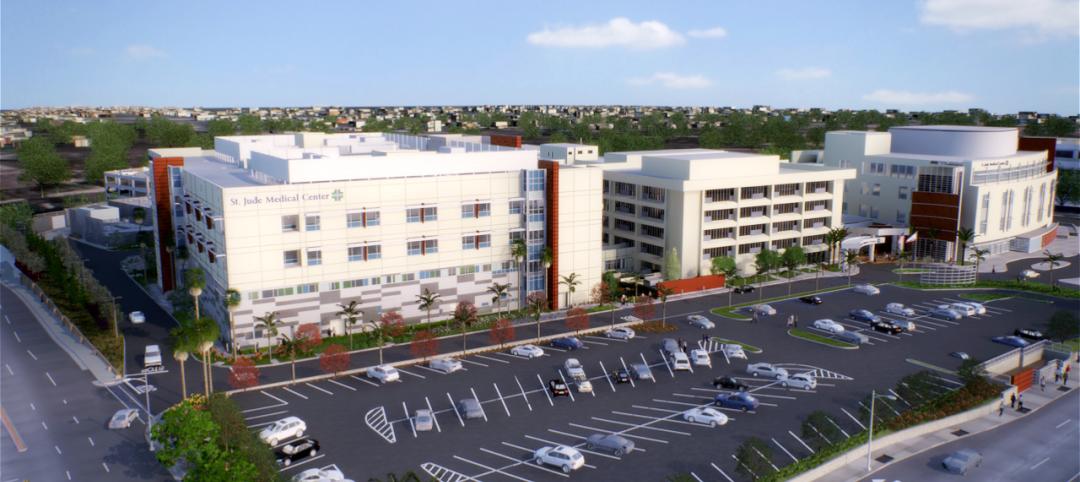The once steady 10% growth rate in healthcare construction spending has slowed, but hasn't entirely stopped.
Spending is currently 1.7% higher than the same time last year when construction materials costs were 8% higher. The 2.5% monthly jobsite spending decline since last fall is consistent with the decline in materials costs. A 7% decline is expected in the next six months, consistent with the year-to-date drop in the value of healthcare construction starts, which includes a 66% plunge in June.
The June drop is partly random but also reflects concern by healthcare project managers about how the outcome of the current healthcare debate in Congress will affect their operations. Specifically, they are concerned about reimbursement rates from federally operated or regulated insurance plans. With no final plan ready for a vote in early August, expect the cautious spending to continue through the summer.
 |
| Healthcare construction spending is currently 1.7% higher than the same time last year, led by hospital work, which is 14% higher than a year ago. |
All options being considered in Washington envision expanded healthcare services that would require additional facility capacity by 2011—but financing for the expanded services remains fuzzy. Half the added cost appears to be vague promises of $40 billion plus annual fee cuts by hospitals and drug companies. Significant growth in healthcare construction will not resume until the healthcare financing arrangements are final and judged to be realistic.
Hospital construction spending is currently 14% higher than a year ago, while spending for other healthcare facilities, including specialized office buildings and residential care facilities, is off 25% from last year. The developers of these buildings react to a recession much as developers of commercial buildings do: They pull back when they see falling rental and occupancy rates. By this time next year, expect spending for medical office buildings and possible residential care facilities to be expanding again in a growing economy while spending for hospitals is expected to still be stuck at current levels.
Related Stories
| Jan 4, 2012
HDR to design North America’s first fully digital hospital
Humber River is the first hospital in North America to fully integrate and automate all of its processes; everything is done digitally.
| Jan 3, 2012
VDK Architects merges with Harley Ellis Devereaux
Harley Ellis Devereaux will relocate the employees in its current Berkeley, Calif., office to the new Oakland office location effective January 3, 2012.
| Jan 3, 2012
New Chicago hospital prepared for pandemic, CBR terror threat
At a cost of $654 million, the 14-story, 830,000-sf medical center, designed by a Perkins+Will team led by design principal Ralph Johnson, FAIA, LEED AP, is distinguished in its ability to handle disasters.
| Jan 3, 2012
BIM: not just for new buildings
Ohio State University Medical Center is converting 55 Medical Center buildings from AutoCAD to BIM to improve quality and speed of decision making related to facility use, renovations, maintenance, and more.
| Dec 12, 2011
Skanska to expand and renovate hospital in Georgia for $103 Million
The expansion includes a four-story, 17,500 square meters clinical services building and a five-story, 15,700 square meters, medical office building. Skanska will also renovate the main hospital.
| Dec 1, 2011
Nauset Construction breaks ground on Massachusetts health care center
The $20 million project is scheduled to be completed by December 2012.
| Nov 29, 2011
Report finds credit crunch accounts for 20% of nation’s stalled projects
Persistent financing crunch continues to plague design and construction sector.
| Nov 28, 2011
Nauset Construction completes addition for Franciscan Hospital for Children
The $6.5 million fast-track, urban design-build projectwas completed in just over 16 months in a highly sensitive, occupied and operational medical environment.
| Nov 11, 2011
AIA: Engineered Brick + Masonry for Commercial Buildings
Earn 1.0 AIA/CES learning units by studying this article and successfully completing the online exam.


